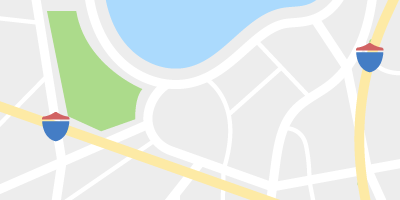Sitting on the coast of the Persian Gulf, the most populous city in the United Arab Emirates is known for promising luxury, adventure, and unparalleled nightlife to the world’s elite travelers. Some visitors choose to dine far above the city streets — on the 122nd floor of the Burj Khalifa (the tallest building in the world) or in a restaurant suspended by a construction crane. From those heights, you can see what oil money and cheap labor can build on top of a small fishing village. But far beneath the glittering lights of the towering skyscrapers, there are apartments, residential neighborhoods, and alleys where casual restaurants cater to the working-class people who built the metropolis. This is where the city really eats.
The UAE went through a rapid period of development in the early 1990s that brought an influx of workers to the country from across South Asia, especially India, Pakistan, and Bangladesh. Today, 89 percent of the country’s residents are foreign workers from all around the globe. Many of these transplants are scattered across the Emirates, but Dubai — as the most recently developed of the seven states — remains an immigrant hub. As a result, the city’s street-level dining is cobbled together from the cuisines of its immigrant residents, and it’s impossible to classify the restaurant scene under one ethnic umbrella.
Middle Eastern, South Asian, and East Asian cuisines blend on top of local Arabian food in workaday restaurants that more than make up for their lack of ambiance. At the same time, homegrown entrepreneurs have developed their own takes on third-wave coffee, plant-based dining, gluten-free desserts, and even Texas barbecue. While COVID did force many small cafes and restaurants to close, quick actions from the government restored normalcy in UAE way before any other country in the region, helping many food businesses recover and persevere.
Even if you’re not staying in a penthouse during your visit, eating in Dubai is a rich experience, with tastes from Arabia and beyond all on one plate.
Health experts consider dining out to be a high-risk activity for the unvaccinated; it may pose a risk for the vaccinated, especially in areas with substantial COVID transmission.
Prices per person, excluding alcohol:
$ = Less than 20 AED (less than $5 USD)
$$ = 20 - 40 AED ($5 - $10 USD)
$$$ = More than 40 AED ($10 USD and up)
Rahma Khan is a travel writer and an independent journalist from Pakistan based in Canada. She uses her travel blog, The Sane Adventurer, to share the stories of her travel adventures and experiences of traveling as a woman of color. Her work is published in The Independent, Condé Nast Traveler and Passion Passport, among others.
Read More
/cdn.vox-cdn.com/uploads/chorus_image/image/73282725/_DSC9433.0.jpg)
/cdn.vox-cdn.com/uploads/chorus_image/image/55495239/Singbury_167.156.jpg)
/cdn.vox-cdn.com/uploads/chorus_image/image/70831167/Proof_on_main.0.jpg)
/cdn.vox-cdn.com/uploads/chorus_image/image/70403168/GettyImages_546142867.0.jpg)

:no_upscale()/cdn.vox-cdn.com/uploads/chorus_image/image/70403003/Matter_farm.0.jpg)
:no_upscale()/cdn.vox-cdn.com/uploads/chorus_image/image/70403010/Allo.0.jpg)
:no_upscale()/cdn.vox-cdn.com/uploads/chorus_image/image/70403029/IMG_1378.0.jpg)
:no_upscale()/cdn.vox-cdn.com/uploads/chorus_image/image/70403038/wild_and_moon.0.jpeg)
:no_upscale()/cdn.vox-cdn.com/uploads/chorus_image/image/70403043/nightjar.0.jpeg)
:no_upscale()/cdn.vox-cdn.com/uploads/chorus_image/image/70403050/Chatpata_egg_noodles.0.jpeg)
:no_upscale()/cdn.vox-cdn.com/uploads/chorus_image/image/72957612/Su_Borek.0.jpg)
:no_upscale()/cdn.vox-cdn.com/uploads/chorus_image/image/72957613/Nour.0.jpg)
:no_upscale()/cdn.vox-cdn.com/uploads/chorus_image/image/70403078/Vietnamese.0.jpeg)
:no_upscale()/cdn.vox-cdn.com/uploads/chorus_image/image/70403085/Saravana_Bhavan.0.jpg)
:no_upscale()/cdn.vox-cdn.com/uploads/chorus_image/image/70403091/billo.0.jpeg)
:no_upscale()/cdn.vox-cdn.com/uploads/chorus_image/image/70403097/Eskinita.0.jpg)
:no_upscale()/cdn.vox-cdn.com/uploads/chorus_image/image/70403104/Pars.0.jpeg)
:no_upscale()/cdn.vox-cdn.com/uploads/chorus_image/image/70403108/Karak.0.jpg)
:no_upscale()/cdn.vox-cdn.com/uploads/chorus_image/image/70403115/Firas_2.0.jpg)
:no_upscale()/cdn.vox-cdn.com/uploads/chorus_image/image/70403121/Last_exit.0.jpg)